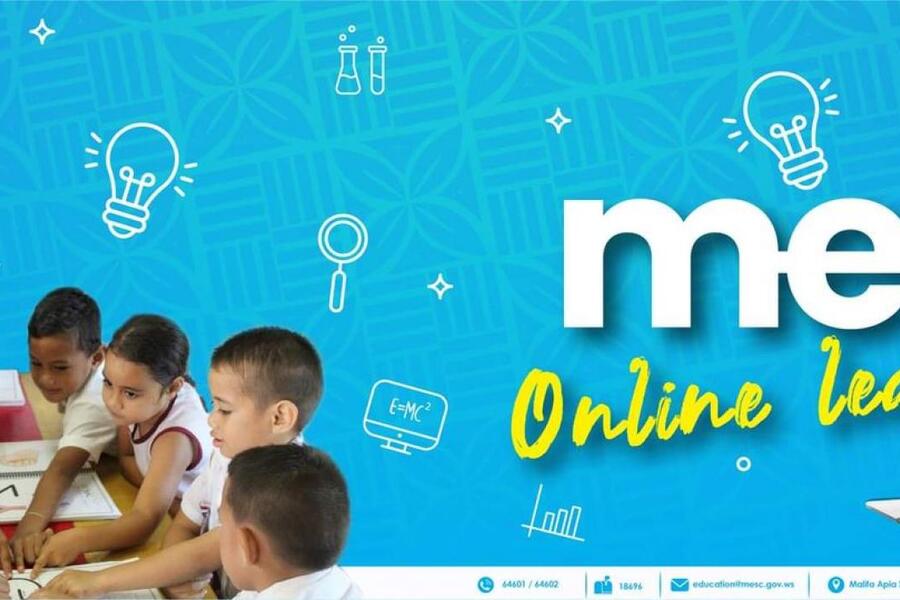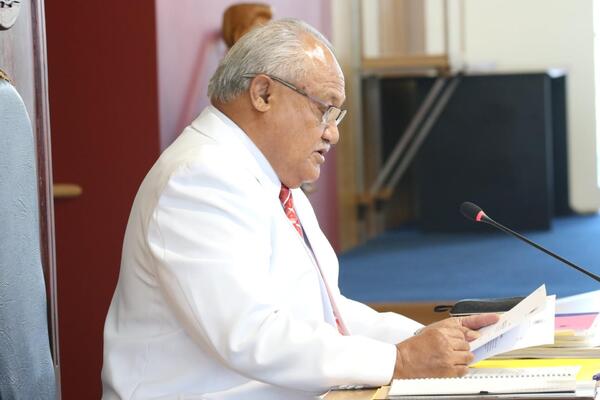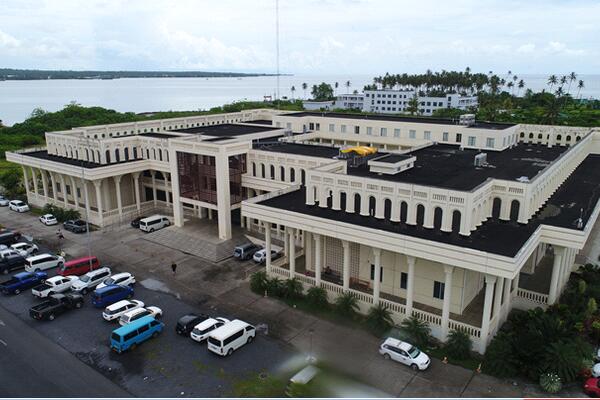The Ministry of Education, Sports, and Culture (MESC) Lifelong Learning Lab is progressing well to be an innovation hub in Samoa.
The Lifelong Learning Lab, a key piece of the Samoa Knowledge Society Initiative under the auspice of the Ministry of Education, Sport and Culture and supported by the India-UN development Partnership Fund received its ICT equipment from the United Nations Educational, Scientific, and Cultural Organization (UNESCO).
The ICT equipment worth Samoan Tala 186,209.586 (USD 72,909.00) was handed over to the Ministry of Education, Sports, and Culture on 16th February 2022. This brings the current value of assets transferred from UNESCO to the MESC Lifelong Learning Lab to Samoan Tala 238,144.286.
The Ministry is the technical co-lead of this initiative together with UNESCO, is progressing well in finalising the setup of the Lifelong Learning Lab.
The ICT equipment for the Lifelong Learning Lab will allow a diverse team of equal users and participants to learn, create, experiment, and develop solutions across the Samoan Society (Education, Health, and Agriculture).
Speaking about the Samoa Knowledge Society Initiative’s Lifelong Learning Lab, Dr Karoline Afamasaga-Fuata’I, Chief Executive Officer for the Ministry, said: “The Government of Samoa commits to building digital citizens capacity through high-quality ICT Education, applicable technology, and access to Open Education Resources.
This is in fulfilment of Key Outcome 11 of the Strategy for the Development of Samoa, aimed at achieving universal access to reliable and affordable ICT services. The MESC Lifelong Learning Lab will be a pilot and provide a model and a testbed that can then be scaled out across Samoa to build ICT capacity, nurture entrepreneurship and create digital citizens that are empowered to contribute, sustain and demonstrate lifelong learning.”
The UN Resident Coordinator Dr Simona Marinescu, while handing over the ICT equipment, thanked the Ministry of Education, Sports and Culture and the UNESCO Office for the Pacific States for working together to bring the project to this phase.
Dr Marinescu remarked that access to appropriate reliable, affordable, and modern technologies is critical to achieving educational objectives for the MESC and nurturing an environment that provides incentives for innovation and entrepreneurship and that science, technology and innovation are essential enablers and drivers for sustainable development.
The Samoa Knowledge Society Initiative aims to help build inclusive knowledge societies by ensuring public access to information that allows participation in decision-making at all levels.
It supports a number of measures from policy to capacity-building in access to information, open-source, open access, and from establishing a digital library at the National University of Samoa to setting up a Lifelong Learning Lab with the Ministry of Education, Sport and Culture.
The Samoa Knowledge Society Initiative is geared to help Samoa progress on the Sustainable Development Goal (SDG) 16, Indicator 16.10.2 on the access to information by creating an enabling environment for enhanced digital development.
Noting the link between the SDG 16 and SDG 4, Ms. Nisha, Director of the Office and UNESCO Representative to the Pacific States, observed: “A Knowledge Society is a multi-pillar concept, and lifelong learning is one of the foundational pillars of a knowledge society.
In Samoa, this concept being applied through this initiative promotes lifelong learning for teachers, education policymakers, and students of all ages as critical for the attainment of many other SDGs. Digital developments is possible only through the preparedness of the education sector and lifelong learning among stakeholders that match fast-evolving digital technologies.
The MESC Lifelong learning lab will be an inclusive innovation hub for training and collaboration that draws and identifies talents, mentors youths, provides accessible learning opportunities to the disabled, and provides pathways and skills required to meet the contemporary and future challenges of Samoa within the globalised economy.”
The Samoa Knowledge Society Initiative is financed by the India-UN Development Partnership Fund, which is administered by the United Nations Office for South-South Cooperation.
UNESCO developed this initiative in close cooperation with Ms. Simona Marinescu, UN Resident Coordinator for Samoa Multi-Country Offices’ cluster, and a range of stakeholders.
-END-










